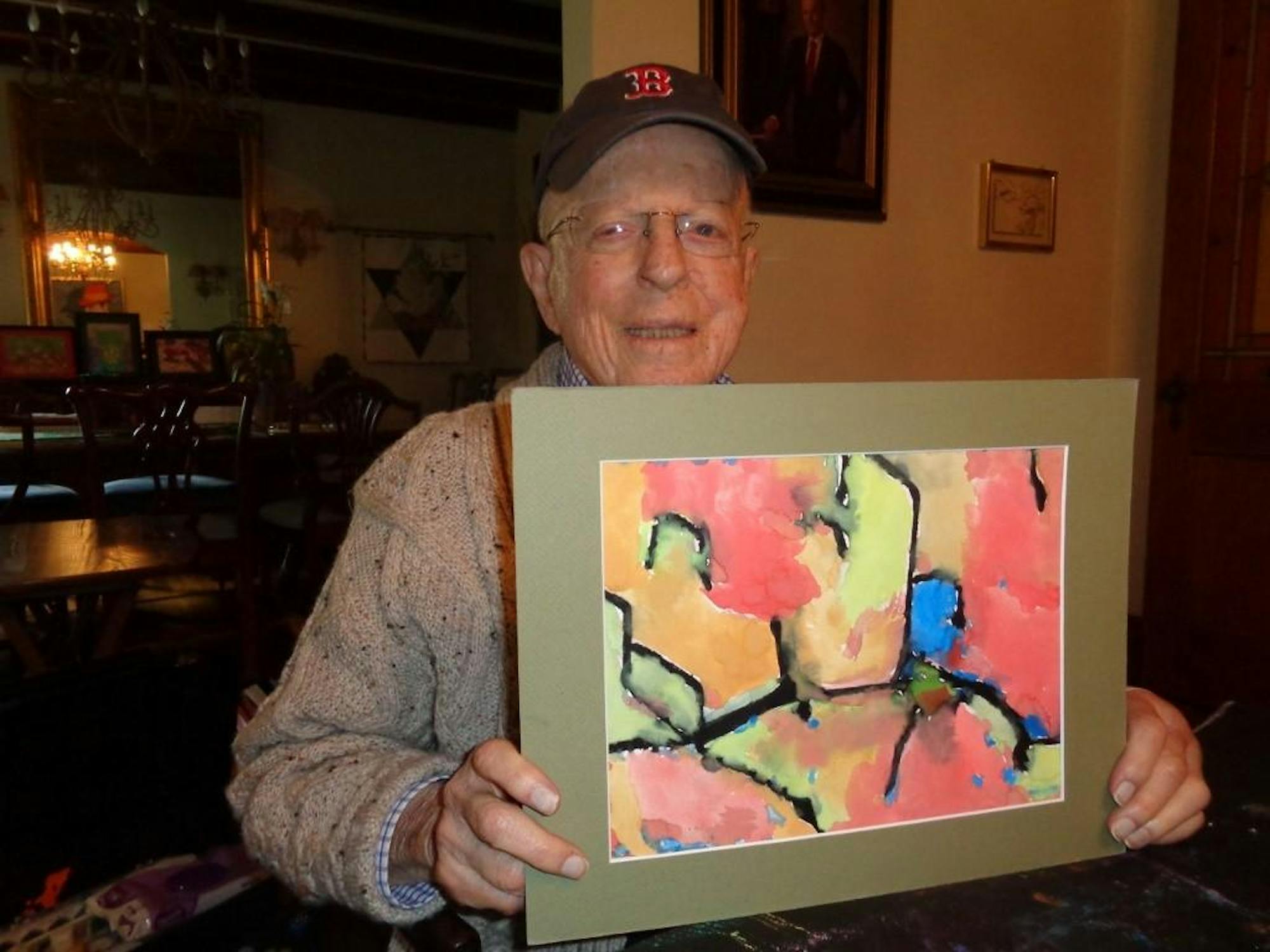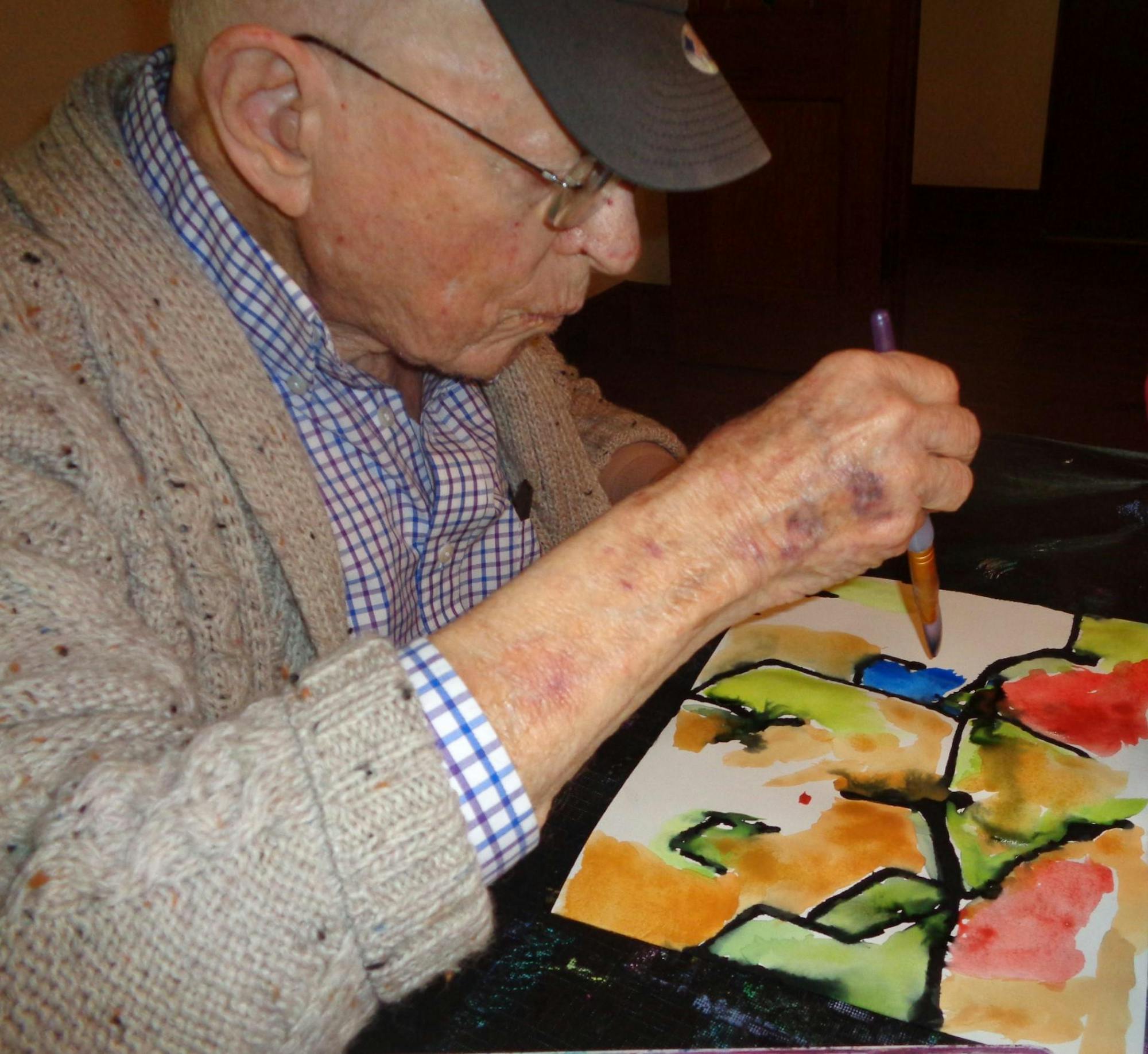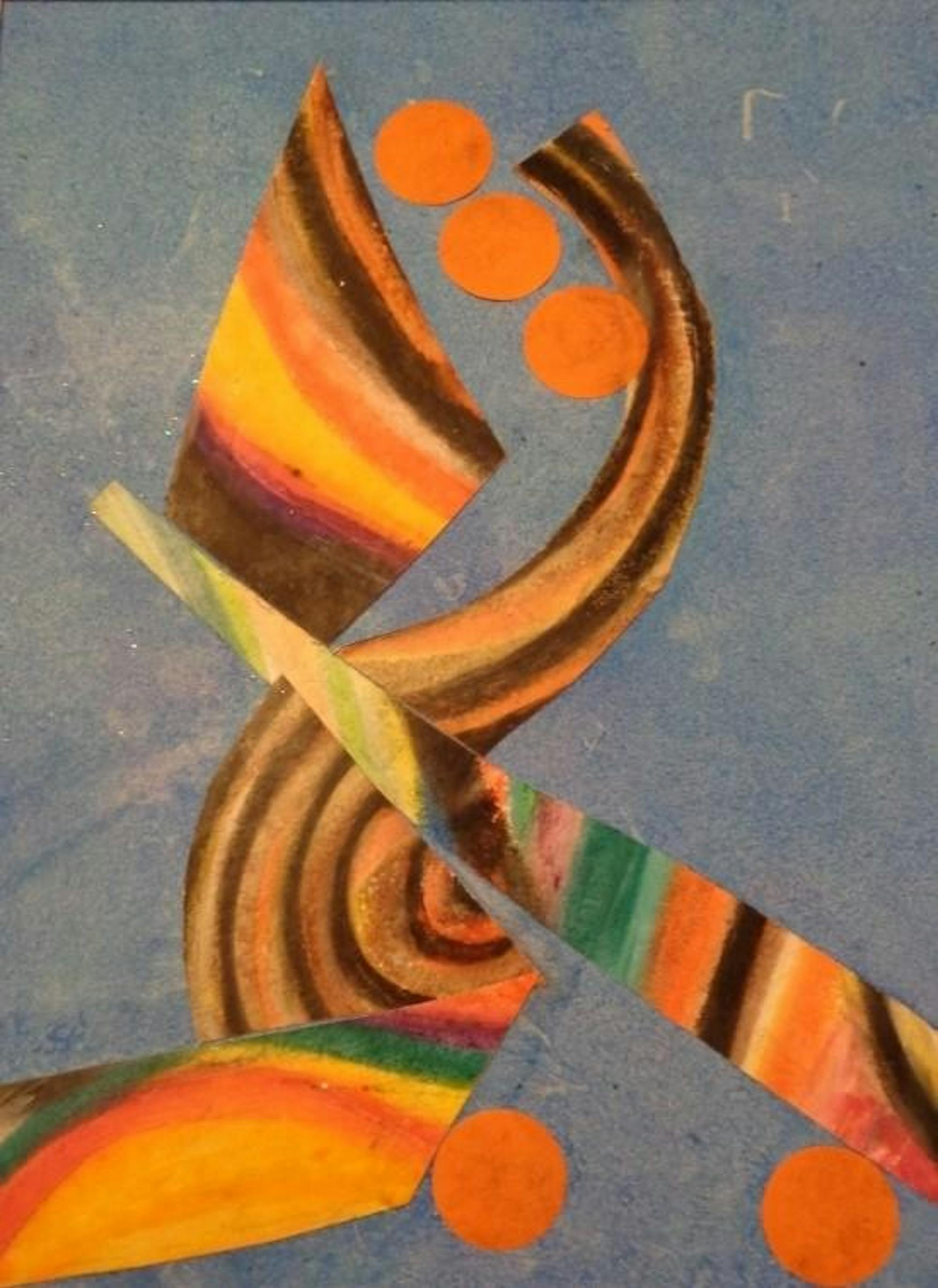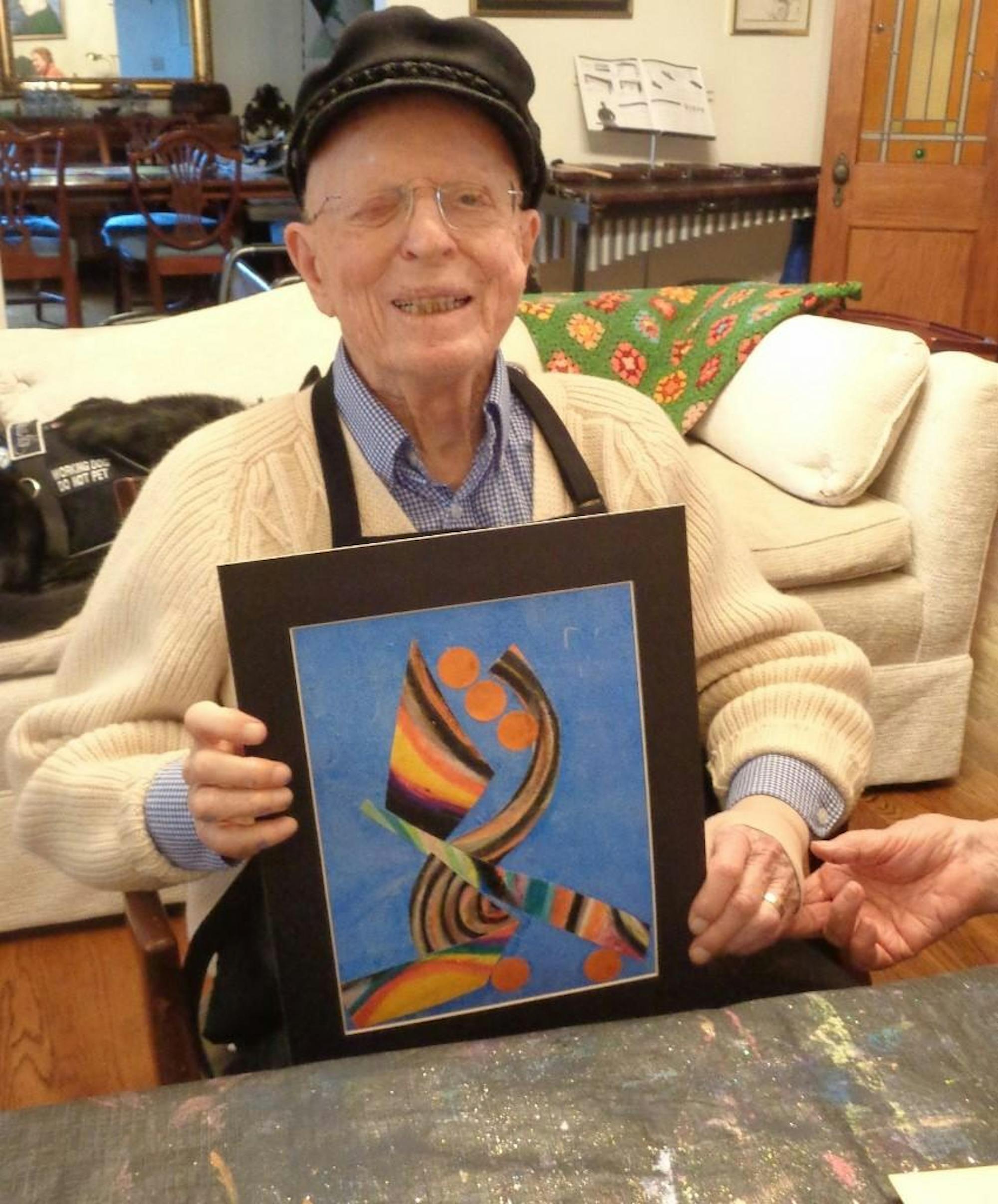Dr. Fred Goldner had more than 50 years of clinical practice and teaching at Vanderbilt University Medical Center, but became depressed and frustrated when his advancing age brought an inevitable cognitive decline. A local art program helped put a smile back on his face.
Goldner, who passed away one month shy of his 96th birthday in 2021, had struggled with coming to terms with what “probably was” dementia, according to his oldest daughter, Cynthia Goldner.
“[His cognitive decline] was a challenge and it frustrated him and it made him depressed in some ways,” Cynthia said in a phone interview. “He didn’t like it. And I think he was aware of it happening because of his medical background … and I think that’s even harder to know what’s going on. He would say he loved difficult cases and finding a solution to difficult cases and now he was one.”


Goldner and his wife wanted to find opportunities for Goldner to get involved in the community after his retirement, and they discovered the Helping Hands Art program, a collaboration between Jewish Family Service and Opening Minds through Art, an international evidence-based art program. OMA aims to “build bridges across age and cognitive barriers through art,” according to their website.
JFS staff pairs Eileen Wallach, a licensed social worker, with Nashville residents living with dementia, including Goldner, who signed up for the program at the end of 2017. Wallach came to the Goldners’ home once a month for 15 months, and each session was an opportunity for Goldner to create a new art piece.
Wallach recalled that when their sessions together started in 2018, Goldner was “still highly verbal” and “had good cognitive response.” He loved doing art, she said.
“His creations are just phenomenal,” Wallach said.
Goldner, who had wanted to be a cartoonist for a long period of his life, enjoyed drawing and took classes in pottery, cooking and steel drums. Cynthia, who traveled from Maryland to Nashville to take care of her father in 2019, said Goldner looked forward to Wallach’s monthly visits. She described Wallach as thoughtful, professional, kind, friendly, and engaging.

Wallach works with people who have experienced a traumatic life-altering event, which includes dementia. The Helping Hands through Art sessions in Nashville are typically one-on-one in a quiet setting, whereas OMA sessions — across the world — are commonly in group settings.
“Eileen focuses on imagination instead of memory and on remaining strengths instead of lost skills,” said Pam Kelner, the CEO of JFS, in a speech. “OMA enables people with dementia to assume new roles as artists and teachers and leave a legacy of beautiful artwork.”
Wallach begins a session by showing examples of completed projects and asking the artist about their preferences for mediums and colors. Mediums included paper, watercolor, paint, tissue paper, glitter, and materials such as Q-tips or toilet paper rolls. Wallach provides guidance throughout the process, but does not make any aesthetic decisions for the artist, since the program emphasizes regaining independence for people with dementia.
“It’s about giving them back control,” Wallach said in a phone interview. “When people create art, it’s all about what you want to create. And so even though it is mandatory that when I’m doing a one-on-one, there’s either a caregiver or an assistant or family member in the room with me in case there’s an issue, the actual art-making is done between the client and myself.”
Cynthia said she noticed a positive change in Goldner’s mood as a result of participating in the program: Goldner’s artwork provided a starting point for conversations.
“He was very proud of [his work], but he didn’t show it during the class,” Cynthia said of her father. “You could see when I would talk, like, ‘Dad, what does that look like to you?’ And it wouldn’t necessarily be what he said during the class because now it’s a day or a week later and to see his thought process or ‘What did you use for this?’ it helped with the ongoing conversations and you would see a slight smile come across his face.”
OMA implements all five aspects of the well-being theory — the idea that well-being is achieved through any activity that incorporates positive emotion, engagement, relationship, meaningfulness, and accomplishment or achievement. Wallach helps the artists frame each of their pieces of art and decide on a title: a process Cynthia said she was supposed to leave completely up to her dad.
Goldner’s piece, “Music to my Ears,” was one of more than 400 entries that Wallach submitted to OMA’s art show, where it won “most unique form” in December 2023. Seventy-two entries won awards. Primarily sky blue and orange, “Music to my Ears” is a collage-type piece composed of cut-out pieces of recycled paper and art materials. The design represents a treble clef — a musical symbol — and is framed in black.

Goldner insisted on having his wife, Martha, join in on the art sessions even though Martha did not qualify for the JFS-sponsored program. She was able to participate by paying Wallach, who owns the nonprofit organization Your Heart on Art in addition to her work with JFS.
Cynthia said Wallach’s sessions became a bonding activity for Goldner and Martha: “Of course, it’s only for clients. But in this case, he wouldn’t be doing anything without Mom.”
The Jewish Observer is published by The Jewish Federation of Greater Nashville and made possible by funds raised in the Jewish Federation Annual Campaign. Become a supporter today.
“The only thing I can tell you is Fred and his wife were duly connected and so they really loved creating together,” Wallach said.
Goldner was a lifelong learner whom some dubbed an “overachiever,” according to Cynthia. During her childhood, Goldner participated in “anything” his four kids were involved with: “He was present. He certainly would do whatever possible to make himself available to his children.”
Now, his framed art pieces reside at the lakehouse he left to his children, about an hour and a half away from Cynthia’s Nashville apartment. She remembers him as a gentle, outdoorsy family man with a dry sense of humor and a passion for art and being around people.
“Dad won [‘most unique form’], which is super, super exciting and a wonderful legacy to who he was,” Cynthia said.

